Hanmaum Seon Center of
Gwangmyeong
Gwangmyeong Seon Center is dedicated to helping all beings learn to rely upon and discover their inherent Buddha-nature. In so doing they can discover this interconnected whole that we call Hanmaum, or one mind. In awakening to this and learning to live in tune with it, each of us can go forward on our own path of spiritual evolution with energy, wisdom, and as a blessing to all around us.
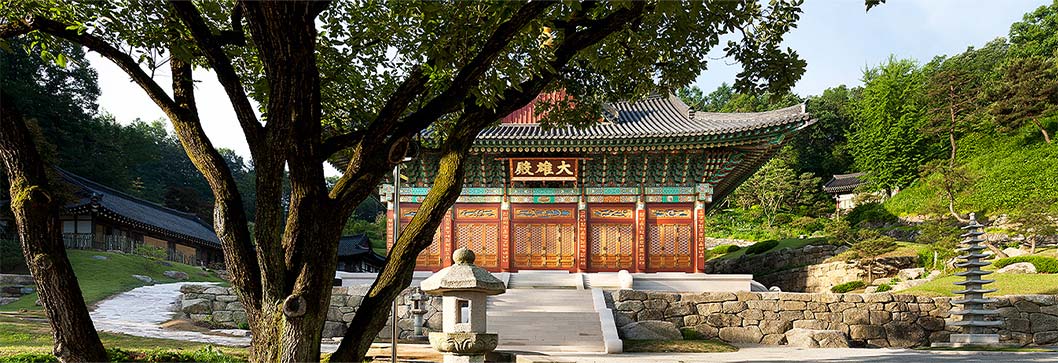
Gwangmyeong Seon Center is a serene temple that harmoniously blends tradition and modernity. Led by bhikkhus who are disciples of Seon Master Daehaeng, the Seon Center serves as a guiding light for visitors to awaken to their inherent Buddha nature and learn how to apply it to their daily lives.
"Let everyone here do their best to learn and practice so that seon masters arise like countless blossoms springing forth."
- Seon Master Daehaeng
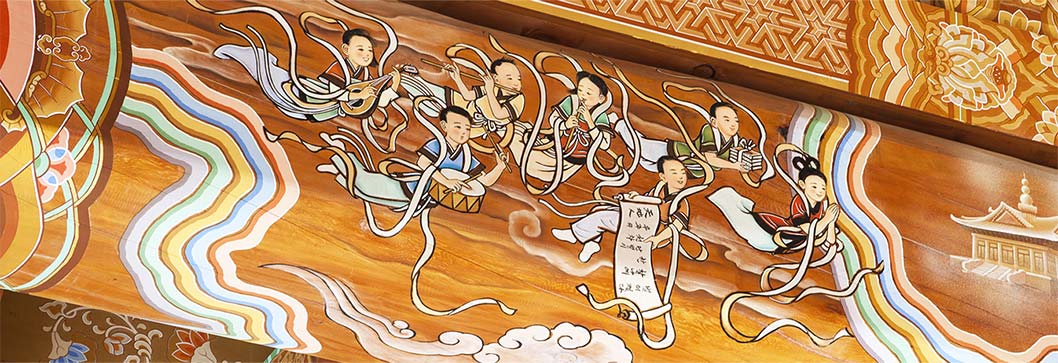
Cultural Institute
Since its completion in 2011, the Cultural Institute the institute has served as a welcoming space for various retreats and as a resting area for visitors to the Seon Center and its Memorial Stupa Park.
Notably, it has hosted Templestay programs for Fulbright Scholars, New Year Templestays, and retreats for children, youth, and young adults from the Seon Center and its branches around the world.
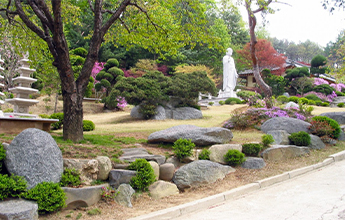
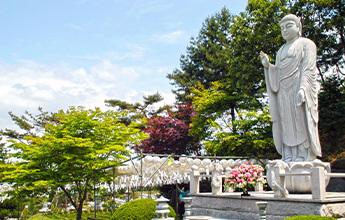
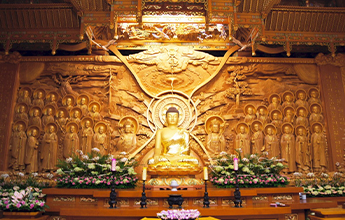
Memorial Stupa Park, Gwangmyeng
Founded in 1986, this park is Korea’s first family stupa park and remains the largest of its kind. Spanning over 13 hectares, it houses approximately 1,200 memorial stupas.
The Memorial Stupa Park was established by Daehaeng based on the principle of one mind, that all beings are interconnected, and all things arise from and return to one mind. This park was started with the purpose of bringing both ancestors and descendants into harmony and peace through this one mind. By providing a place with karmic affinity with those ancestors who have passed away, they are, in effect, able to reside at the temple and experience the presence of one, thus helping to raise their level of consciousness and continue forward on a better path of growth.
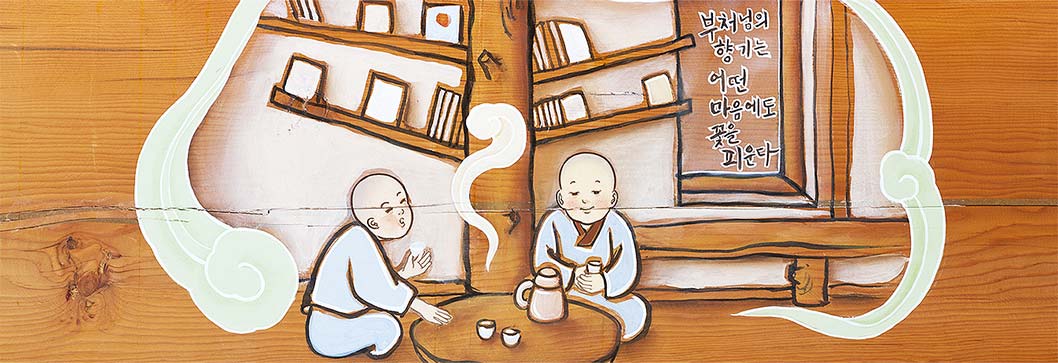
The Origin of the Memorial Stupa (Yeongtap)
During the Silla Dynasty, Seon (Zen) Buddhism arrived from Tang China and flourished, establishing Nine Mountain schools across the nation. Disciples of these great masters deeply revered their teachers. They recorded their talks and, after a master’s passing, would build a stupa to house their relics and ashes, preserving their legacy for future generations. This was the beginning of the memorial stupa, or yeongtap, in Korea. While the exact date of the first stupa is unknown, records suggest that one was built for Master Won Gwang around the 7th century, marking an early example of this beautiful tradition in Korea.
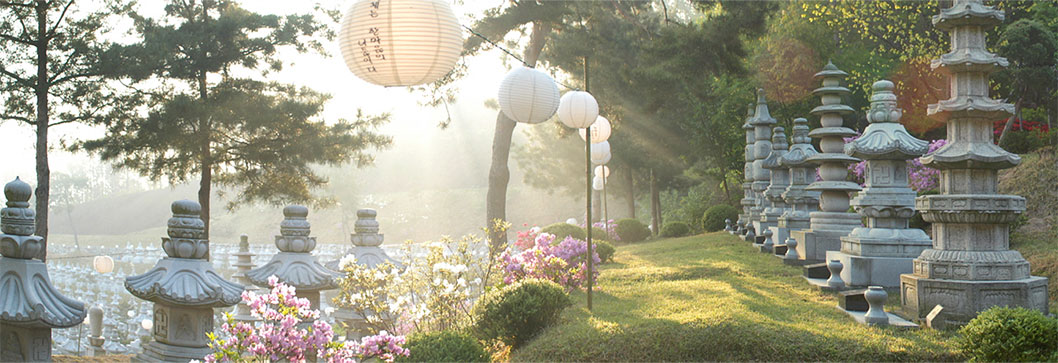
A Truer Way of Honoring Our Ancestors
This body, made of elements, is just a set of clothes that our eternal, true self wears for a little while before setting it aside.
Because of this, truly honoring our ancestors lies in guiding and tending their true essence, not in clinging to the physical form they once wore. After a life ends, the body returns to the four elements of earth, water, fire, and air. To be overly attached to these physical remains is a fleeting and empty gesture. It can even hinder the journey of those who have passed on and need to find a new beginning.
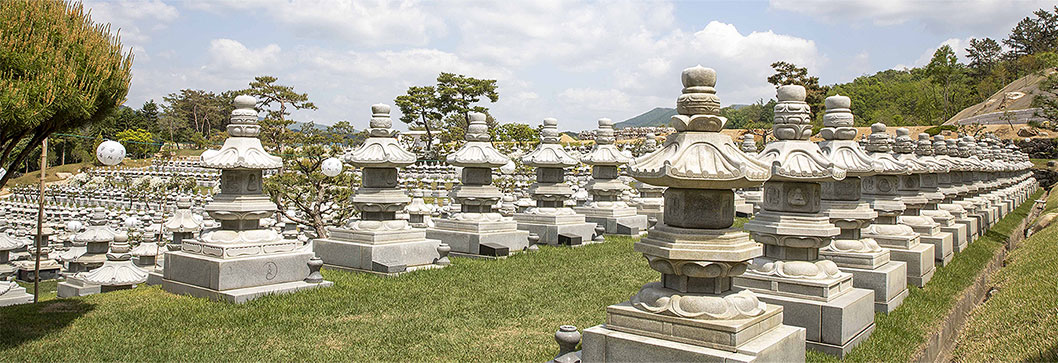
A Stupa of Merits, Prepared in Life
More and more people are choosing to arrange for their own memorial stupas while they are still alive. This is a beautiful practice for both themselves and for their families. It is an act of letting go of attachment to the physical body, honoring the natural way of things, and easing the path for future generations. Just as we hold memorial services for ancestors during the Baekjung (Ullambana) festival on the 15th day of the 7th lunar month, arranging for a stupa while one is still alive is a way of building merits that ripple outward, bringing peace to oneself and those who follow.
- Address 1402, Daegeum-ro, Geumwang-eup, Eumseong-gun, Chungcheongbuk-do, 27638 Republic of Korea
- Tel/Fax Tel. +82-43-877-5000 / Fax.+82-43-877-2900
- eMail onemind@hanmaum.org
